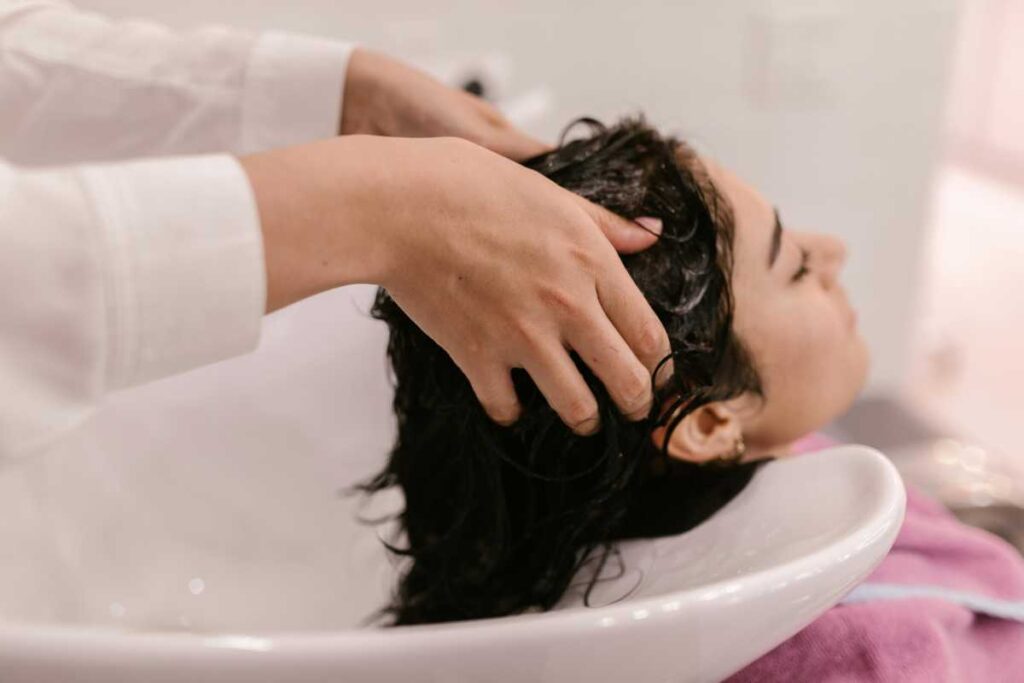If you’ve ever heard or experienced a popping sound when touching your scalp or running your fingers through your hair, you may be wondering what exactly is happening. This phenomenon is known as scalp popping or hair cracking, and it’s become a topic of interest in the beauty community. But is it a harmless occurrence, or could it be damaging to your hair?
In this article, we’ll dive into what scalp popping is, why it happens, and whether it’s something you should be concerned about when it comes to your hair health.
What Is Scalp Popping or Hair Cracking?
Scalp popping, sometimes referred to as hair cracking, occurs when you feel or hear a “pop” or “crack” sound as you move your hair or touch your scalp. This sensation can be similar to the sound of cracking knuckles or the popping of air bubbles. It often happens when you gently tug at your hair, pull on a section of your scalp, or when your hair is combed or brushed through.
While this sensation can be startling, it is typically harmless and does not usually indicate any serious issues with your hair or scalp. However, some individuals may experience it more often than others, and the reasons behind it can vary.
Why Does Scalp Popping Happen?
There are several potential causes for scalp popping or hair cracking:
1. Air Bubbles in the Hair Follicles
One of the most common explanations for scalp popping is the presence of air bubbles in your hair follicles or between strands of hair. Just like how joints can crack or pop due to air bubbles, your scalp can also experience a similar effect when pressure is applied to the hair or scalp. The “pop” is the sound of air escaping from the follicles, which is entirely normal and non-damaging.
2. Tension on the Scalp or Hair
When you pull or tug on your hair—whether you’re brushing, styling, or pulling your hair into a ponytail—it can create tension on the scalp. The resulting force can cause slight movements in the hair roots or follicles, which may trigger a popping or cracking sound. This is common for those who frequently style their hair in tight hairstyles.
3. Build-up of Product or Oil
Sometimes, a build-up of hair products like gels, mousses, or oils can cause a stiffening effect on the hair shaft. This stiffness, especially when combined with brushing or combing, can lead to cracking sounds as the product-coated hair moves. In this case, the sound is a result of the hair breaking free from the build-up or moving against the products.
4. Dry Scalp or Hair
Dryness in the scalp and hair can contribute to cracking sounds. When hair lacks moisture, it can become brittle and more prone to friction. As you run your fingers or a comb through dry hair, it can create a sound as strands rub together or break free from their previous position.
5. Overuse of Styling Tools
Excessive use of heat styling tools, like flat irons, curling irons, or blow dryers, can dry out the hair shaft, leaving it fragile. This makes the hair more likely to create popping or cracking sounds when it is moved, as the lack of moisture causes the strands to shift or break more easily.
Is Scalp Popping Safe for Your Hair?
In most cases, scalp popping or hair cracking is harmless and does not pose a risk to the health of your hair or scalp. The air bubbles in the follicles or slight shifts in the hair roots are not dangerous and do not cause long-term damage to your hair. However, there are a few things to keep in mind if you notice frequent popping or cracking sounds:
1. Avoid Excessive Tension on Your Scalp
Repeatedly pulling or tugging on your hair with tight hairstyles, harsh brushing, or overuse of hair accessories can contribute to hair breakage or damage. If you frequently experience scalp popping when pulling on your hair, it’s a good idea to reconsider how tightly you’re styling it. Opt for looser hairstyles that won’t put undue stress on the hair or scalp.
2. Moisturize Your Scalp and Hair
If you notice that the popping is due to dryness, it’s important to hydrate your hair and scalp. Dryness can cause hair to become brittle and more prone to breakage, leading to popping sounds. Use moisturizers, leave-in conditioners, or oils to keep your hair soft, supple, and healthy. Regularly conditioning your scalp can help prevent dryness and improve the overall health of your hair.
3. Be Mindful of Product Build-Up

If the popping sound is caused by product build-up, consider adjusting your hair care routine. Build-up can make your hair stiff and more likely to make cracking noises. Use clarifying shampoos once in a while to remove residue, and be cautious about how much product you use on your hair.
4. Minimize Heat Styling
Excessive heat can damage the hair shaft, leading to brittleness and breakage. While occasional heat styling is okay, frequent use of styling tools can cause long-term damage. Try to limit heat styling or use a heat protectant spray to prevent damage.
When Should You Be Concerned About Scalp Popping?
While most instances of scalp popping are harmless, there are a few scenarios where it could signal an underlying issue:
- Persistent pain or discomfort: If the popping sound is accompanied by pain, tenderness, or scalp irritation, it might indicate an issue such as an infection, inflammation, or hair follicle damage.
- Hair loss: If you notice significant hair shedding, thinning, or bald patches along with scalp popping, it could suggest a more serious scalp condition that requires attention.
- Unusual scalp conditions: If you experience itching, scaling, or noticeable changes in your scalp’s appearance, it could be a sign of scalp disorders like seborrheic dermatitis or dandruff that might require treatment.
If any of these symptoms occur, it’s advisable to consult a dermatologist or a trichologist for further evaluation and appropriate treatment.
Conclusion
Scalp popping or hair cracking is generally harmless and often caused by factors like air bubbles in the follicles, tension on the scalp, or dryness. It’s usually not something to worry about unless it’s accompanied by pain, discomfort, or noticeable changes in your hair health. To keep your hair in top condition, practice gentle styling techniques, hydrate your scalp and hair, and avoid overuse of heat and styling products.
If you’re ever unsure about the cause of scalp popping, or if you experience any unusual symptoms, don’t hesitate to seek professional advice. With proper care, your hair will remain healthy, and the occasional “pop” can remain just a harmless quirk of your hair routine.

